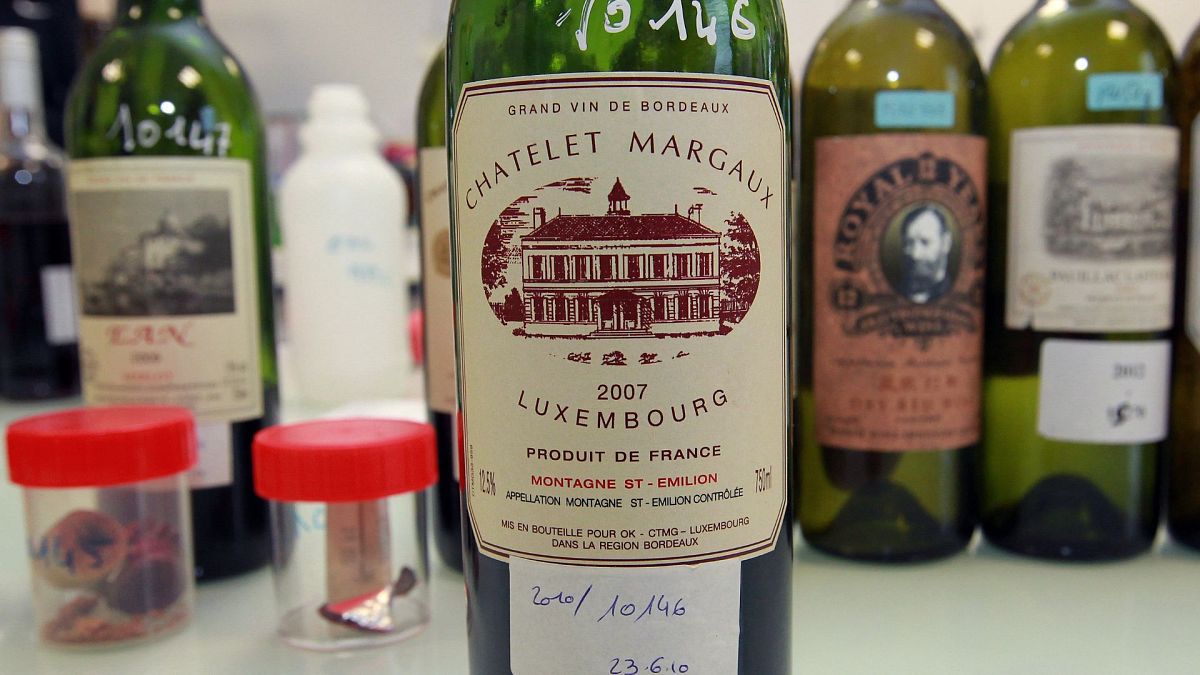In a joint operation involving French, Italian, and Swiss authorities, six people, including a high-value target, were arrested in raids across 14 locations for their involvement in a criminal gang selling counterfeit wine for exorbitant prices. The Europol-backed investigation, which began in 2021, revealed that the gang produced fake wine in Italy and sold it for €15,000 per bottle, generating around €2 million in sales. The gang used counterfeit French Protected Designation of Origin (AOP) labels to deceive consumers and sell the bottles at market value worldwide.
The criminal network’s operation involved producing fake wine in Italy, delivering it to an Italian airport, and exporting it to be sold by legitimate wine traders. The counterfeit bottles were sold at high prices due to the forged AOP labels, which signify a wine’s authenticity and quality. The gang also used various illegal methods, such as counterfeit wine stickers, wax products, technical machines to recap bottles, and electronic equipment valued at €1.4 million. Additionally, over €100,000 in cash was seized during the raids, highlighting the extent of the criminal organization’s activities.
A 40-year-old Russian national with a history of convictions is believed to be a key figure in the counterfeit wine operation. The suspect was caught in the act of conducting a transaction with a printer at Milan Malpensa airport, where the gang worked with printers to produce fake labels. The French public prosecutor described the suspect as instrumental in establishing a transnational counterfeiting organization. Another French citizen was also indicted in Dijon for money laundering and organized fraud in connection to the case.
The criminal gang targeted wines from prestigious regions like Burgundy, where renowned wineries like Romanée-Conti produce high-value bottles. Due to adverse weather conditions in 2024, many wine producers in France experienced difficulties with their harvests. The gang’s exploitation of well-known wine brands underscores the fraudulent nature of their activities and the need for increased vigilance within the wine industry to prevent such crimes in the future.
Wine fraud and mislabeling have been ongoing issues in the industry, leading the EU to introduce new regulations for wines and wine products from the 2024 harvest onwards. The new legislation mandates that all bottles of wine sold in the EU must include nutritional information and a list of ingredients, regardless of their country of origin. These measures aim to enhance transparency and protect consumers from falling victim to counterfeit wine schemes, thereby safeguarding the integrity of the wine market and ensuring that only authentic products reach consumers’ glasses.
In conclusion, the successful operation by French, Italian, and Swiss authorities to dismantle a criminal gang involved in selling counterfeit wine highlights the importance of collaboration in combating organized crime. The arrests of key suspects and the seizure of illegal goods demonstrate a firm stance against fraudulent activities in the wine industry. With the implementation of new EU regulations aimed at enhancing transparency and consumer protection, the fight against wine fraud is ongoing. Consumers are advised to be vigilant when purchasing high-value wines and to verify the authenticity of products to avoid falling prey to counterfeit schemes.































